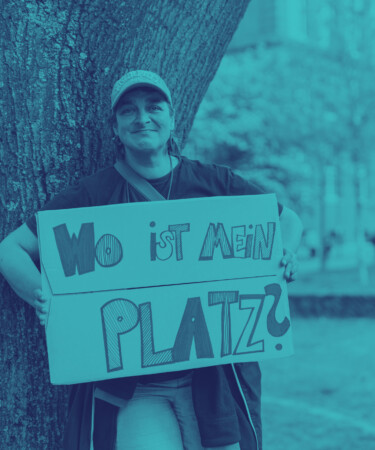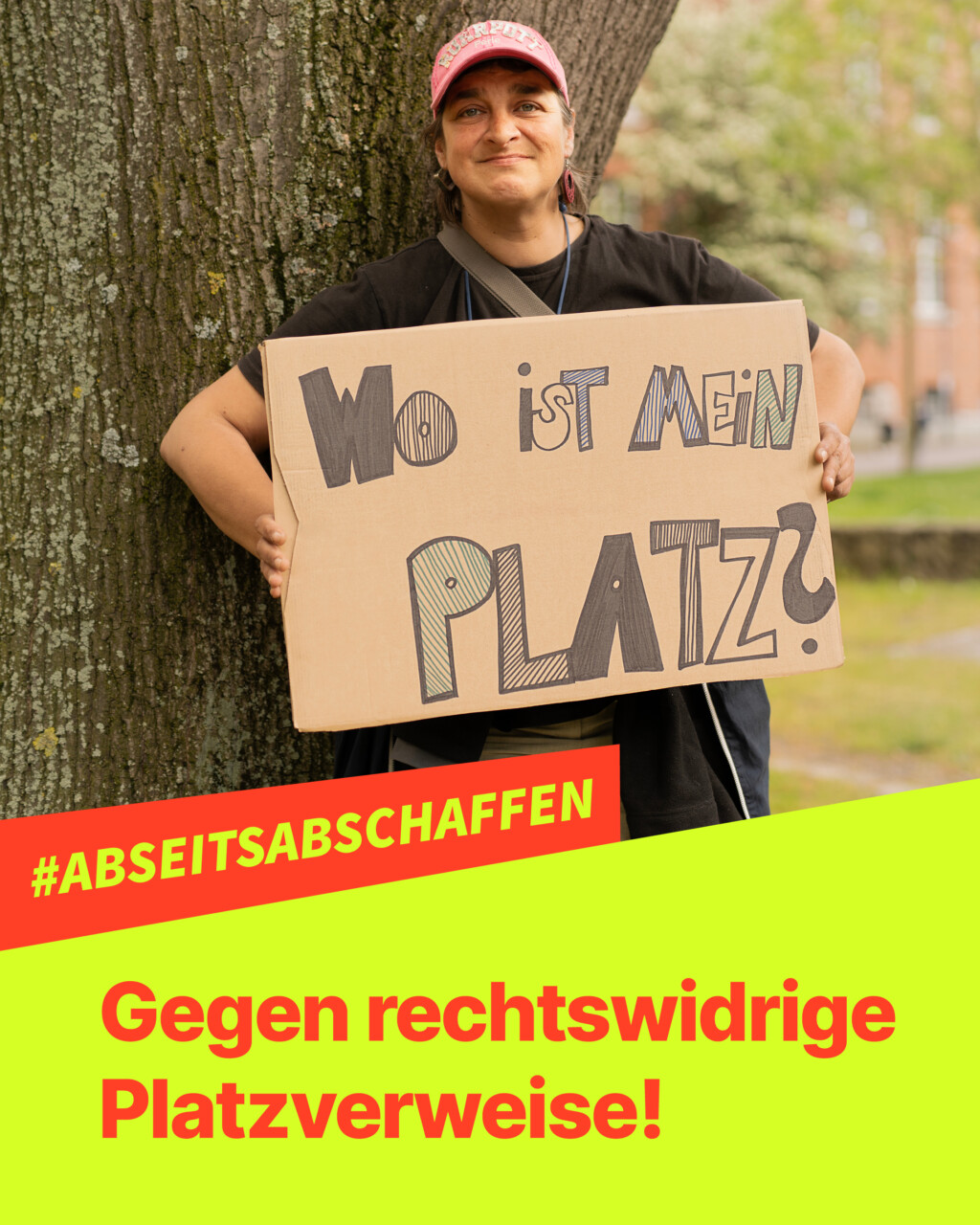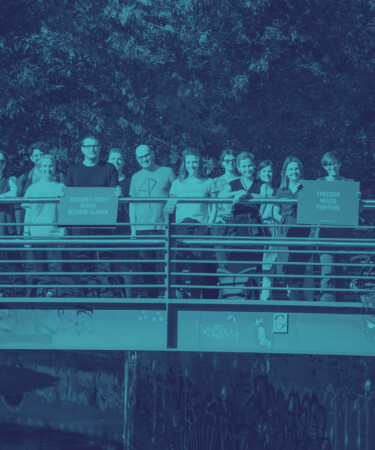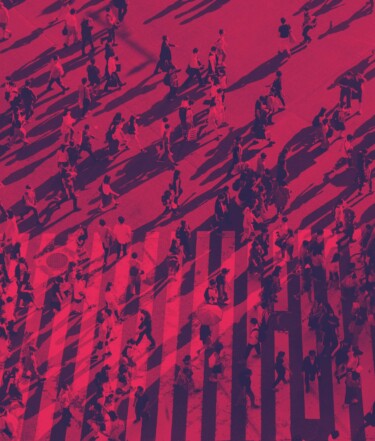
Where is my place?
When people are being pushed out of public spaces and their basic rights are violated, we support them. We are now taking legal action against the blanket ban on begging on local public transport.
The HVV conditions of carriage prohibit people from peacefully asking for help on buses and trains and in stations. Since May 2024, this ban on begging has been increasingly enforced with loudspeaker announcements and ticket inspectors. People begging at bus stops or on buses and trains are sent away and have to pay a fine of 40 euros. Anyone who is unable to pay the fine must expect collection proceedings. In response to a question from the Hamburg Left Party, the Hamburg Senate stated that a total of 1,319 fines were imposed for begging and playing music on Hamburg's trains in the first half of 2024 - those affected had to pay over 50,000 euros.
Disproportionate interference with fundamental rights through the ban on begging
Everyone has the right to ask for support in existential need. A blanket ban on begging violates the personal rights of people living in poverty and interferes disproportionately with their freedom of expression. Transport companies must respect these basic rights of all their passengers. The fact that people find the confrontation with visible poverty unpleasant cannot justify a ban on begging and the associated stigmatization of poor people.
Violations of fundamental rights through exclusion
Repressive measures such as bans on begging on public transport and banning homeless people from public spaces lead to those affected being criminalized and stigmatized. Together with the street magazine Hinz&Kunzt, we already called for “Abolish offside” for the 2024 European Football Championship. Particularly when major media events such as international soccer championships take place, homeless people are increasingly forced out of train stations and city centers, usually illegally, in an attempt to create a “tidy” cityscape. At the same time, the police have been taking ever tougher action against homeless people in recent years.
The aim is to make the most extreme form of poverty invisible. We have countered this with a campaign under the hashtag “Abolish offside”. We continue to ask together with those affected: Where is my place? A question that is becoming increasingly important in the face of growing poverty, rapidly rising rents, a lack of housing and increasing homelessness needs structural answers.

Homelessness violates human dignity
Housing is the basic prerequisite for a self-determined life. Living on the streets or in precarious accommodation often means exhaustion, health risks, exclusion and violence.
In order to prevent these negative consequences and so that people can exercise their basic rights, the federal government must finally take action. The figures speak for themselves. The Bundesarbeitsgemeinschaft Wohnungslosenhilfe (BAG W) now estimates that there are over half a million homeless people in Germany.
In April 2024, the Federal Cabinet adopted the first National Action Plan against Homelessness. After more than two years, this is a first step towards fulfilling the coalition's promise and meeting the EU target to eliminate homelessness. However, there is still a lack of concrete solutions and financial resources to end homelessness by the set target of 2030.




